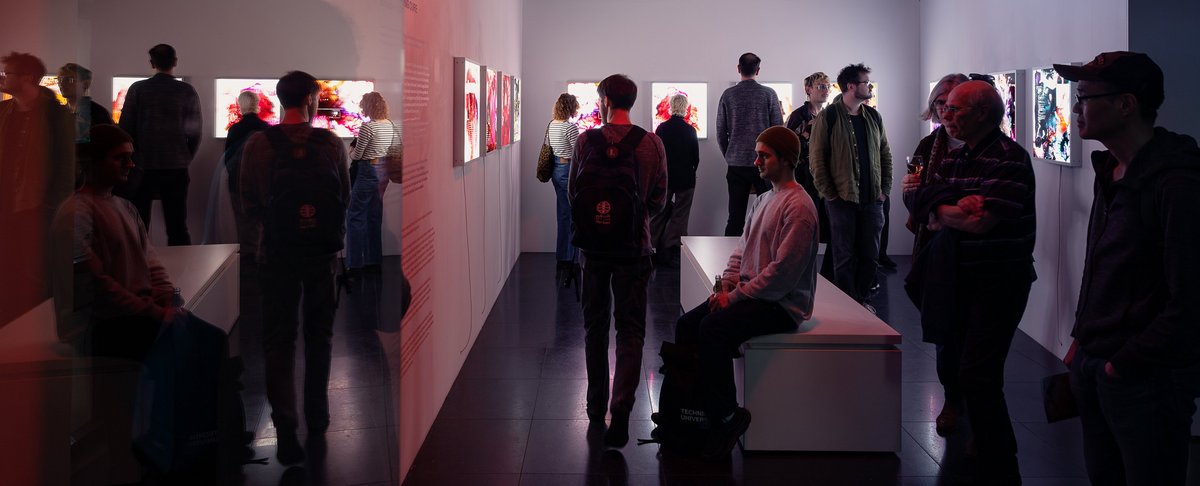THE NEVERENDING CURE
Exhibition Opening
It was a fantastic evening at the intersection of science and art: On May 28, we opened the new exhibition by the artist duo kennedy + swan together with around 80 guests. The exhibition THE NEVERENDING CURE is the result of the residency of Berlin-based artists Bianca Kennedy and Felix Kraus — collaborating with BIFOLD scientists and supported by the Schering Foundation. A heartfelt thank you to kennedy+swan - the BIFOLD artists in residence 2024/25 - for the exciting journey they’ve undertaken over the past months.
The opening featured BIFOLD Co-Director Klaus-Robert Müller, who welcomed the guests, Frederick Klauschen, Director of Pathology, LMU Munich, Group Leader BIFOLD/Charité – Universitätsmedizin Berlin, who gave us a brief insight into the rapidly advancing use of machine learning and big data management in medicine, as well as the BIFOLD scientists, Dennis Grinwald, Naima Elosegui Borras and Tom Neuhäuser, who collaborated closely with the artists.
We would like to extend a warm thank-you to our colleagues at the Schering Stiftung, especially Katja Naie and Nataša Vukajlovic, for their artistic expertise and support throughout the residency and exhibition production as well as to our colleagues at Technische Universität Berlin: Annette Müller und Robert Nieman, who manage the exhibition space UNI_VERSUM.
It was a truly inspiring and thought-provoking evening.
Opening times:
If you couldn’t make it to the opening: The exhibition will be open to the public until Friday June 27, in the UNI_VERSUM, located on the ground floor of TU Berlin’s main building, weekdays from 12:00 to 3:00 PM.
The exhibition will also be open at the Long Night of Sciences, June 28th, 2025, between 5:00 - 10:00 pm. Meet the artists who will be on site.
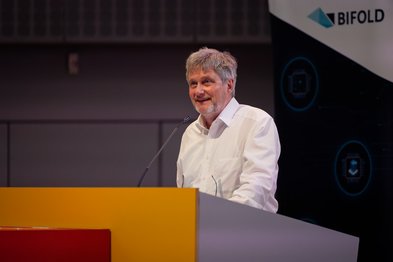
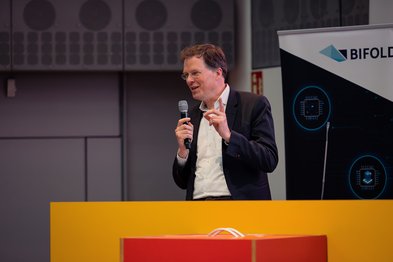
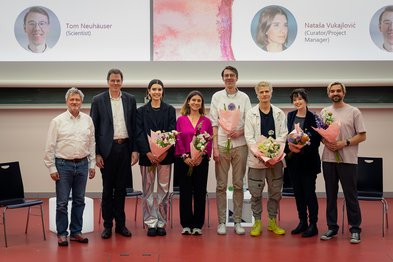
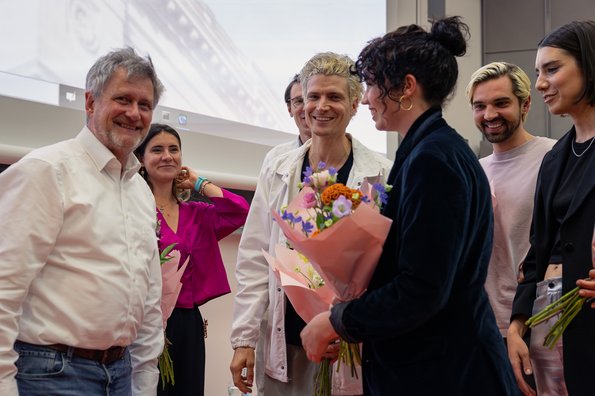
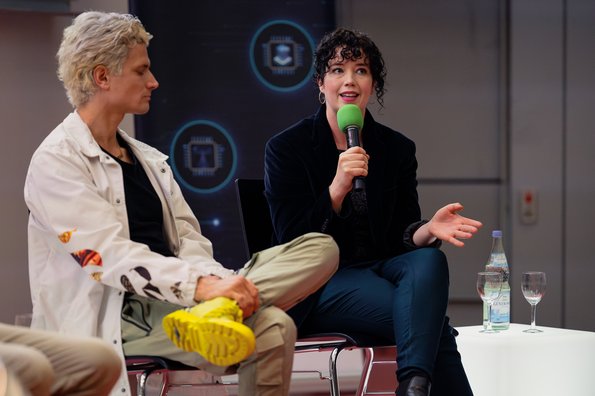
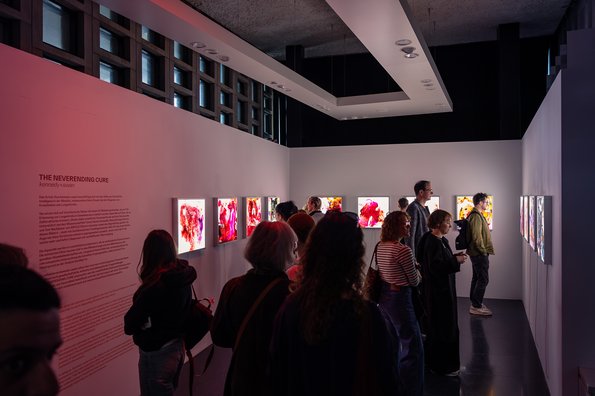
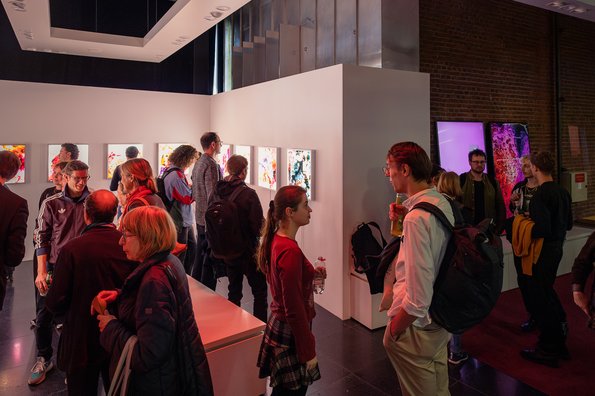
How far are we from a diagnostic AI that we can trust wholeheartedly?
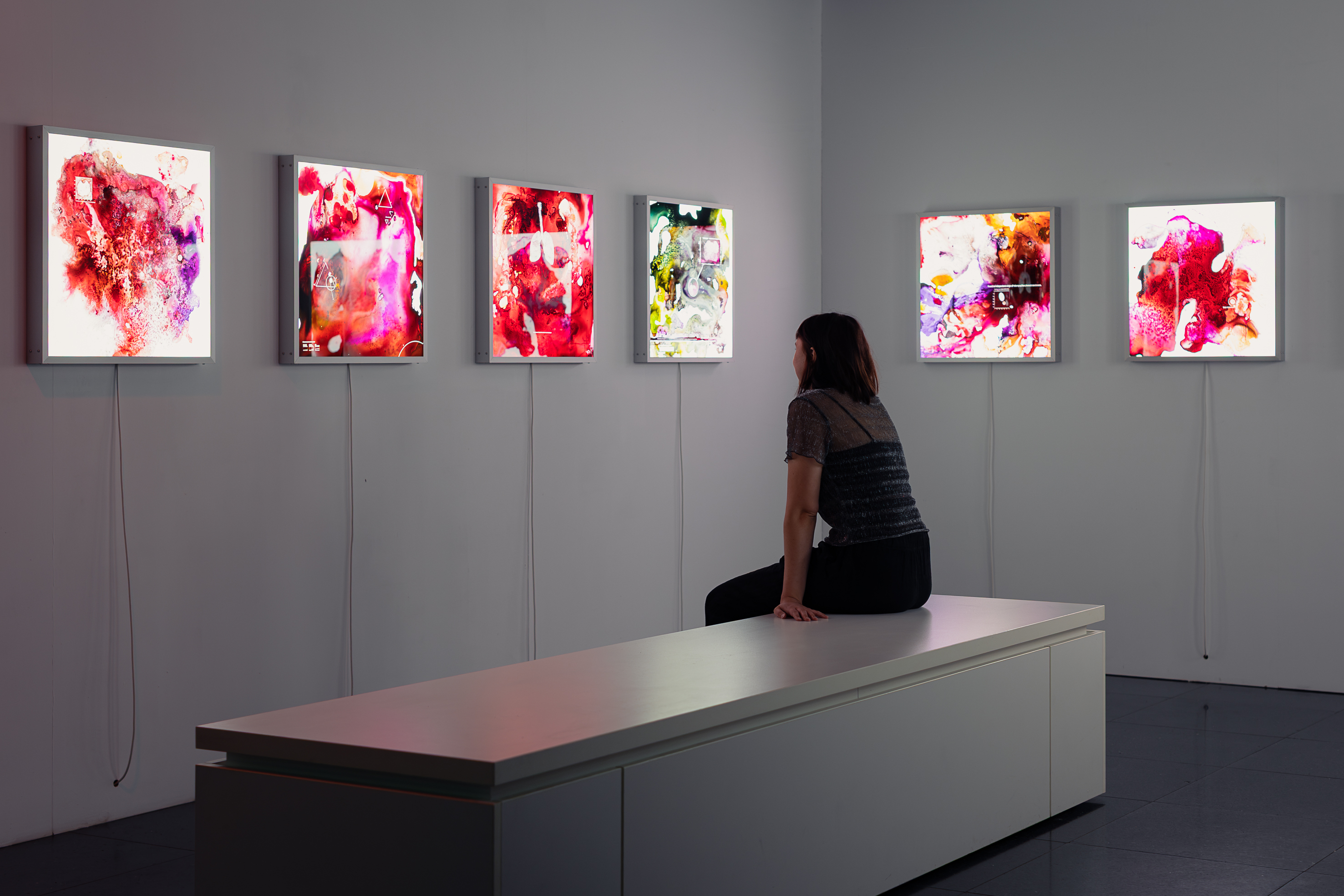
The use of AI in medicine comes with big promises: AI is supposed to alleviate illness, reduce suffering, and extend our life span. Besides the immense technological potential, it is, however, important to reflect on social, ethical, and philosophical issues. What happens when sensitive health data are used to train medical AI models? None of the current systems are error-free. They hallucinate and tend to provide plausible diagnoses instead of admitting insecurities.
One such hallucination is at the center of kennedy+swan’s work The Neverending Cure. An AI model specialized in recognizing lung cancer in tissue scans is submitted to a both playful and revealing experiment. With the support of researchers from BIFOLD (Naima Elosegui Borras, Tom Neuhäuser, Dennis Grinwald), kennedy+swan exposed the algorithm to watercolors on glass – painted in the aesthetics of microscopic specimen. What looks like fine structures of real lung tissue to the human eye is recognized by the AI application as potentially diseased tissue and diagnosed as such with astonishing confidence.
In their artistic research, kennedy+swan reflect on the blind spots of medical AI systems. These systems are built on datasets that are not neutral; instead they reflect societal dynamics complete with their contradictions and tensions. Among other things, the duo explores the distinction between “healthy” and “sick” and raises the question: Should machines also be trained with “species-foreign” content to reliably differentiate between these two conditions? How far are we from a diagnostic AI that we can trust wholeheartedly?
The watercolor lightboxes that resemble pneumotomies are supplemented by animated films that dive deeper into the microcosm of the painted tissue landscapes. From the AI analysis of the images, to a hand-crafted, extra-corporal lung, to the complete immersion in the watercolors’ “cell structures,” we get closer to the feeling of opening up the body to artificial intelligence. Already tomorrow, today’s challenges could provide crucial impulses to deliver eternal healing – fed by ever-new data that will liberate us, step by step, from our physical suffering forever. THE NEVERENDING CURE.


